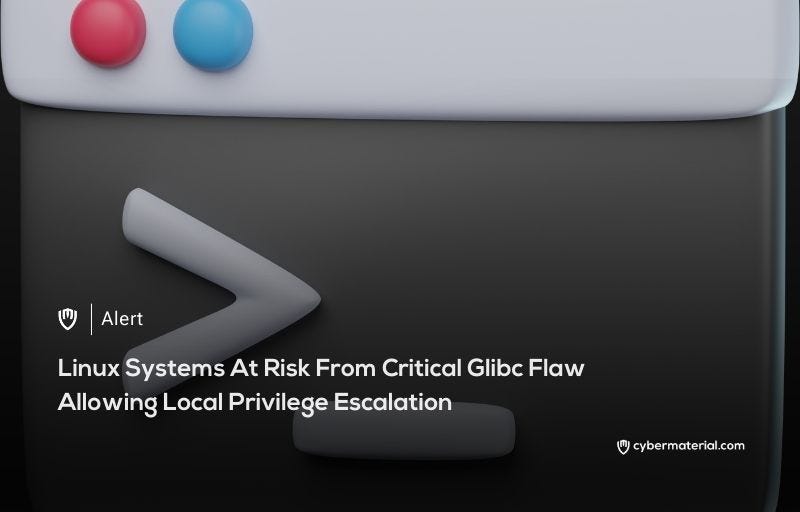
A critical vulnerability has been found in the GNU C Library known as glibc. This flaw potentially exposes millions of Linux systems worldwide to severe security risks. Attackers could exploit it to achieve local privilege escalation on vulnerable Linux machines. The vulnerability is tracked under CVE-2025-4802 and was disclosed on May 16, 2025. Successful attackers could execute arbitrary code by manipulating the LD_LIBRARY_PATH environment variable. Systems running Rocky Linux, Debian, and Ubuntu with glibc 2.27-2.38 are potentially affected. Other major Linux distributions using these glibc versions also face this significant security threat.
The flaw primarily affects statically linked setuid binaries that call the dlopen() function. This function call can be made directly or indirectly through other common library functions. Examples include functions like setlocale() or various Network Security Services (NSS) functions. Normally setuid binaries ignore environment variables like LD_LIBRARY_PATH for enhanced system security. However this specific glibc vulnerability unfortunately manages to circumvent that important protection. An official advisory states dlopen may incorrectly search LD_LIBRARY_PATH for library loading. This critical error can lead to executing library code fully controlled by an attacker. This dangerous vulnerability was introduced by a code commit way back in the year 2017.
It was finally fixed by a patch in January 2023 integrated into glibc 2.39.
Security researcher Solar Designer has developed and shared a public proof of concept case. This test case clearly demonstrates how the specific vulnerability can be actively exploited. Malicious code in a shared library can be loaded by vulnerable setuid programs. This allows potential arbitrary code execution often with highly elevated system privileges. The advisory notes no such vulnerable public program was found at its publishing time. However the use of custom setuid programs is still quite common in enterprise environments. This specific bug is therefore considered a low-probability but very high-impact security vulnerability. The risk is especially high with legacy or custom-built static binaries found on systems. Affected glibc versions range from 2.27 up to 2.38 with a critical CVSS score of 9.8.
System administrators should quickly prioritize several important actions to mitigate this critical discovered risk.
They must update their systems’ glibc to version 2.39 or any later available version. This updated glibc version specifically contains the official and necessary fix for this vulnerability. Applying all available security patches from your Linux distribution vendor is also highly crucial. Auditing systems for any statically linked setuid binaries particularly custom applications is strongly advised. Consider implementing additional robust access controls using security modules like SELinux or AppArmor. Organizations should carefully review and actively minimize the overall use of any setuid binaries. Those using older Linux distributions must check vendors for available backported security patches.
Reference:
The post Glibc Flaw Gives Linux Root Access Risk first appeared on CyberMaterial.


